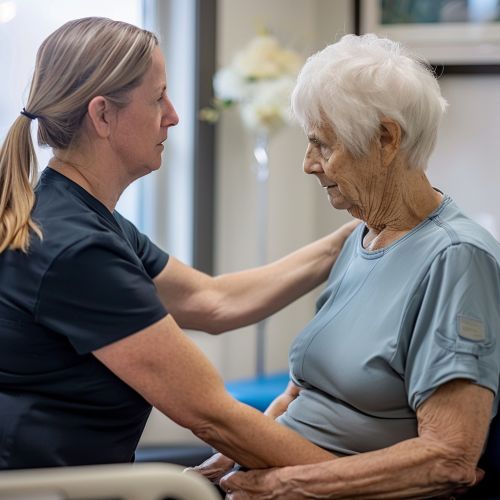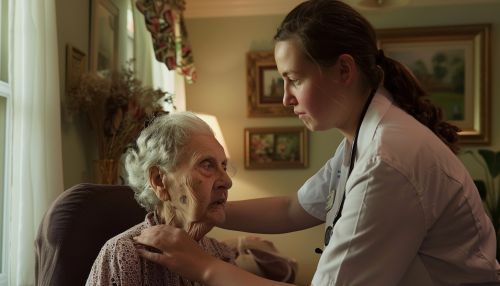Geriatric Nursing
Overview
Geriatric nursing is a specialty within the field of nursing that focuses on the care of elderly patients. This branch of nursing is dedicated to providing comprehensive, patient-centered care that addresses the unique needs of older adults. Geriatric nurses are often responsible for managing chronic illnesses, preventing disease, and promoting overall health and wellness in this population. They also play a critical role in helping older adults maintain their independence and quality of life as they age. Gerontological nursing is closely related to geriatric nursing, with the former focusing more on the study of aging and the latter on the care of aging individuals.
History
The field of geriatric nursing has its roots in the late 19th and early 20th centuries, when the first nursing homes and long-term care facilities began to emerge. These institutions were initially designed to provide care for the poor and infirm, but over time, they evolved to serve a broader population of older adults. The need for specialized nursing care for the elderly became increasingly apparent as the average lifespan increased and the number of older adults grew. In the mid-20th century, the specialty of geriatric nursing was formally recognized by the American Nurses Association (ANA). Today, geriatric nursing is a well-established and respected field, with a strong emphasis on promoting healthy aging and improving the quality of life for older adults.
Role of Geriatric Nurses
Geriatric nurses play a critical role in the healthcare system, providing care for a population that is often complex and has unique needs. They work in a variety of settings, including hospitals, nursing homes, assisted living facilities, and home healthcare. Their responsibilities typically include assessing patients' health status, developing and implementing care plans, administering medications, and providing education to patients and their families. They also often serve as advocates for their patients, working to ensure they receive the appropriate care and resources.
Geriatric nurses must have a deep understanding of the aging process and the unique health challenges that older adults face. They must also have strong communication and interpersonal skills, as they often work closely with patients and their families. In addition, they must be able to work effectively in a multidisciplinary team, coordinating care with other healthcare professionals such as physicians, pharmacists, and social workers.
Education and Certification
To become a geriatric nurse, individuals must first complete a nursing program and become a registered nurse (RN). This can be achieved through a diploma program, an associate degree in nursing (ADN), or a bachelor of science in nursing (BSN). After becoming an RN, individuals can choose to specialize in geriatric nursing. This typically involves gaining experience in a geriatric setting and completing additional education and training.
Certification in geriatric nursing is available through the American Nurses Credentialing Center (ANCC). To become certified, nurses must have a current RN license, have at least two years of full-time nursing experience, have at least 2,000 hours of clinical practice in geriatric nursing within the last three years, and have completed at least 30 hours of continuing education in geriatric nursing within the last three years.
Challenges and Future Directions
The field of geriatric nursing faces several challenges, including a shortage of geriatric nurses, the increasing complexity of care for older adults, and the need for more research and evidence-based practice in this area. Despite these challenges, the field continues to evolve and grow, with a strong emphasis on improving the quality of care for older adults.
The future of geriatric nursing is likely to be shaped by several key trends, including the increasing use of technology in healthcare, the shift towards patient-centered care, and the growing emphasis on preventive care and health promotion. As the population continues to age, the demand for geriatric nurses is expected to increase, making this a promising field for those interested in a career in nursing.
See Also


